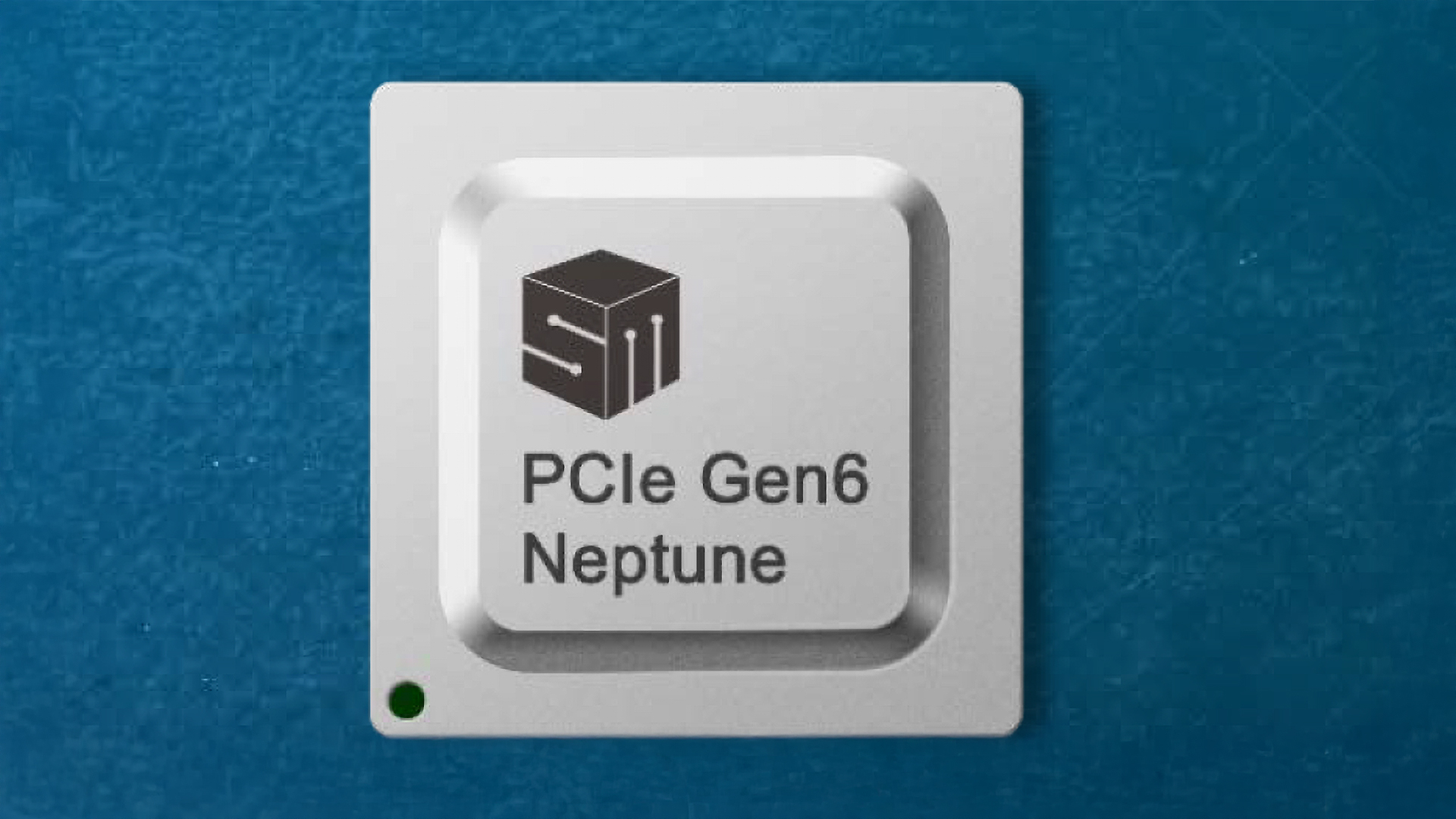Silicon Motion gives a glimpse of its PCIe 6.0 controller for client SSDs — 25+ GB/s sequential reads, 3.5 million random IOPS, coming 2028-2029
Fast and furious, but still some way off in the distance

Get Tom's Hardware's best news and in-depth reviews, straight to your inbox.
You are now subscribed
Your newsletter sign-up was successful
At the ongoing Future Memory & Storage conference, Silicon Motion gave a sneak peek on its next-generation flagship SSD controller with a PCIe 6.0 x4 interface for client PCs. The new controller is codenamed Neptune and will offer the rather unprecedented sequential read performance of over 25 GB/s. Unfortunately, PCIe Gen6 SSDs for client PCs are still a few years away.
Silicon Motion's Neptune controller with a PCIe 6.0 x4 interface is the industry's first announced PCIe Gen6 SSD platform for client PCs . It will feature eight NAND channels supporting interface speeds of up to 4800 MT/s, targeting next generation 3D NAND memory with over 400 active layers. The Neptune's controller will enable compatible drives to attain sequential read speeds of over 25 GB/s and random performance of 3.5 million IOPS, which is dramatically higher compared to the best client SSDs with a PCIe 5.0 x4 interface.
In addition, the Neptune controller features Separate Command Architecture (SCA), which divides the command and address transmission paths within the NAND interface, allowing the controller to handle commands and addresses simultaneously instead of sequentially to reduce real-world latency and boost available bandwidth.
However, even Neptune-based drives will offer slightly lower sequential read performance than what SMI expects from enterprise-grade SM8466-based PCIe 6.0 SSDs, and two times lower random performance compared to SM8466-powered drives as the latter features 16 NAND channels and various performance optimizations to offer sustained high performance.
Silicon Motion plans to start mass production of its PCIe 6.0 flagship controller for client applications in 2028 (though we do not know whether this is early 2028, or late 2028), so expect actual drives based on the chip to arrive in 2029 or even 2030. This corroborates with what Wallace Kou, chief executive of Silicon Motion, told us a few months ago.
"You will not see any PCIe Gen6 [solutions] until 2030," said Kou. "PC OEMs have very little interest in PCIe 6.0 right now — they do not even want to talk about it. AMD and Intel do not want to talk about it."
But extreme performance of PCIe Gen6 SSDs will come at a price since such controllers will have to pack in more compute capabilities and higher-speed interfaces, which are harder and more expensive to implement.
Get Tom's Hardware's best news and in-depth reviews, straight to your inbox.
In addition to announcing its PCIe 6.0 x4 SSD controllers for client and data center applications, Silicon Motion also disclosed that its existing MonTitan SM8366 PCIe Gen5 SSD platform for data centers can support drive configurations of up to 256 TB using the latest high-capacity 3D NAND devices, which is a twofold increase compared to existing SSDs based on the same controller.
Follow Tom's Hardware on Google News to get our up-to-date news, analysis, and reviews in your feeds. Make sure to click the Follow button.

Anton Shilov is a contributing writer at Tom’s Hardware. Over the past couple of decades, he has covered everything from CPUs and GPUs to supercomputers and from modern process technologies and latest fab tools to high-tech industry trends.
-
bit_user Reply
This is the opposite of what LPDDR5 does, where you do see a real latency impact from alternating address & data over the same wires. The tradeoff is that you need more wires and I suppose more power to transmit them concurrently.The article said:the Neptune controller features Separate Command Architecture (SCA), which divides the command and address transmission paths within the NAND interface, allowing the controller to handle commands and addresses simultaneously instead of sequentially to reduce real-world latency and boost available bandwidth.
Any word on CXL support?The article said:even Neptune-based drives will offer slightly lower sequential read performance than what SMI expects from enterprise-grade SM8466-based PCIe 6.0 SSDs, and two times lower random performance compared to SM8466-powered drives as the latter features 16 NAND channels and various performance optimizations to offer sustained high performance.
